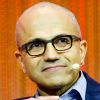8 Best-Selling Political Economy Books Millions Love
Satya Nadella, CEO of Microsoft, Roy Sebag, founder of Goldmoney, and others recommend these best-selling Political Economy books that millions have embraced.


There's something special about books that both critics and crowds love—especially in Political Economy, where complex ideas shape societies and markets. These 8 best-selling Political Economy books have stood the test of time, offering insights into capitalism, growth, and market dynamics that remain crucial today.
Satya Nadella, Microsoft CEO, brings a leader’s eye to economic evolution, endorsing works like The Great Transformation for their deep analysis of market and social change. Meanwhile, Roy Sebag, founder of Goldmoney, champions The Wealth of Nations as a foundational guide to economic systems. Their endorsements highlight how these books influence thinkers and practitioners alike.
While these popular books provide proven frameworks, readers seeking content tailored to their specific Political Economy needs might consider creating a personalized Political Economy book that combines these validated approaches. This option helps you focus on the most relevant insights for your unique goals and background.
Recommended by Roy Sebag
Founder of Goldmoney and Mene
“@CSir2017 @Goldmoney Dear Christopher, I strongly recommend you brush up on some economic history. The first book I implore you to read is called "The Wealth of Nations". In the book, a system of cooperation is described in great detail (capitalism) where the money being employed is Gold and Silver.” (from X)
by Adam Smith··You?
by Adam Smith··You?
Adam Smith, a Scottish moral philosopher and pioneer of political economy, wrote this book to explore the dynamics of market economies during the 18th century. You’ll gain insight into concepts like the invisible hand, the role of self-interest, and the foundations of capitalism that still influence economic thought today. For example, the book carefully details how individual pursuits can unintentionally create collective benefits, a principle that underpins modern economic policy. If you’re interested in understanding the roots of economic theory and political philosophy, this book offers a rich historical context and sharp analysis that continue to resonate.
by Karl Marx, Ben Fowkes, Ernest Mandel··You?
by Karl Marx, Ben Fowkes, Ernest Mandel··You?
Karl Marx's decades of study as a philosopher and political economist culminated in this profound analysis of capitalism's mechanics and consequences. In Capital, you explore detailed critiques of private property and its influence on social relations, laid out through rigorous examination of 19th-century English society. The book teaches you to understand wealth division, labor exploitation, and the systemic forces driving capitalism toward transformation. If you're grappling with ideas about economic systems or the roots of social inequality, this text offers a foundational perspective grounded in historical and economic theory, especially valuable for political science students and activists.
by TailoredRead AI·
by TailoredRead AI·
This tailored book on political economy mastery explores established techniques for analyzing economic systems through a lens that matches your background and goals. It examines key concepts such as market dynamics, economic models, and policy impacts, focusing on your interests to deepen understanding efficiently. By combining widely validated knowledge with your specific learning objectives, the book reveals how economic forces shape societies and influence political decision-making. Through carefully selected topics that connect theory with real-world application, this book offers a personalized journey into political economy. Its tailored content helps you grasp complex economic interactions and equips you to critically evaluate economic policies and their social consequences.
Recommended by Satya Nadella
CEO of Microsoft
Unlike most political economy books that focus narrowly on market mechanics, Karl Polanyi's analysis reveals the profound societal shifts triggered by the Industrial Revolution's economic upheaval. He dissects the pitfalls of a self-regulating market and explores the severe social consequences when market forces go unchecked, particularly under capitalism's untempered expansion. Through chapters detailing historical economic transformations and their political fallout, you gain insight into the tensions between market liberalism and social protections. This book suits anyone grappling with the roots of modern economic policy, social justice advocates, and scholars seeking to understand globalization's historical context.
Recommended by The Sunday Times (UK)
“A lively, accessible and provocative book.” (from Amazon)
by Ha-Joon Chang··You?
by Ha-Joon Chang··You?
Ha-Joon Chang challenges the conventional wisdom that free markets operate independently and efficiently, drawing from his role as Assistant Director of Development Studies at Cambridge. In this book, you learn to question widely accepted economic doctrines, such as the idea that making the rich richer benefits everyone or that markets are ever truly free. Chang uses engaging examples—like how the washing machine impacted society more than the internet—to reveal hidden truths behind capitalism. If you want to rethink economic policies and understand capitalism's complex realities beyond textbook theories, this book offers clear, thought-provoking insights.
by Naomi Klein··You?
by Naomi Klein··You?
Naomi Klein challenges the conventional wisdom that free-market capitalism spreads smoothly and peacefully by exposing its darker methods. Drawing from her extensive investigative journalism, she shows how economic policies often capitalize on crises — from natural disasters to political upheavals — to impose radical privatization and reshape societies under duress. You'll learn about the concept of "disaster capitalism," including detailed case studies like Chile's coup aftermath and post-Katrina New Orleans, revealing how economic shock treatments serve powerful interests at the expense of vulnerable communities. This book suits anyone seeking to understand the intersections of economics, politics, and social justice through a critical global lens.
by TailoredRead AI·
This tailored book explores the core concepts and dynamics of economic growth, focusing on your unique interests and goals. It reveals how economies expand by examining key drivers like productivity, capital accumulation, innovation, and policy impacts, all matched to your background. Through a step-by-step progression, it covers foundational theories and real-world applications, providing clarity on complex topics such as growth models and development challenges. By tailoring content specifically to your needs, this personalized guide helps you efficiently grasp essential growth principles without sifting through unrelated material. It offers a focused journey into economic growth that integrates widely recognized knowledge with insights that resonate personally.
by Hannu Nurmi··You?
by Hannu Nurmi··You?
The proven track record that speaks for itself: Hannu Nurmi, an expert in political economics with extensive teaching and research background, offers a detailed introduction to the fundamental methods shaping political economy today. You’ll explore core theories alongside advanced topics like decision theory, game theory, mechanism design, and games of asymmetric information, gaining a solid grasp of increasingly technical but essential tools. This book suits students and anyone keen to understand how theoretical models explain political and economic interactions with precision. For example, chapters on game theory illustrate strategic behavior in politics, offering insights you won’t find in more general texts.
by M Frederic Bastiat·You?
by M Frederic Bastiat·You?
M Frederic Bastiat's essays deliver a distinctive voice in political economy, reflecting his sharp mind as a 19th-century French economist and philosopher. Through these essays, you explore foundational ideas about free markets, government intervention, and economic fallacies, gaining clarity on concepts like opportunity cost and the unseen consequences of policy. Bastiat's writing challenges conventional wisdom by exposing common economic misconceptions, illustrated in chapters such as "What Is Seen and What Is Not Seen." This book suits anyone curious about the principles underlying economic debates and those seeking a historical lens on political economy’s enduring questions.
by Paul A. Baran·You?
by Paul A. Baran·You?
Paul A. Baran's extensive work as an economist during the mid-20th century led him to challenge prevailing views on economic development. This book explores how economic surplus is generated and utilized, providing a framework that connects economic growth to broader social and political changes. You will gain insight into the economic dynamics of both developed and underdeveloped nations, especially how economic transformation intertwines with societal evolution. Chapters detail the mechanisms of surplus production and its implications for development strategies, making this essential for those interested in the intersection of economics and political structures. If you're seeking a foundational understanding of how political economy shapes growth, this book offers a focused and historically grounded perspective.
Proven Political Economy Methods, Personalized ✨
Get expert-approved strategies tailored to your unique Political Economy interests and goals.
Trusted by thousands of Political Economy enthusiasts worldwide
Conclusion
These 8 best-selling Political Economy books reveal clear themes: a commitment to understanding capitalism’s mechanics, the social impacts of economic growth, and the critical evaluation of market myths. Their enduring popularity reflects both expert and reader validation.
If you prefer proven methods, start with classics like The Wealth of Nations and Capital to ground yourself in economic theory and critique. For validated approaches to social and political change, combine The Great Transformation with The Shock Doctrine for contrasting perspectives on market forces and crises.
Alternatively, you can create a personalized Political Economy book to combine proven methods with your unique needs. These widely-adopted approaches have helped many readers succeed in navigating the complex world of Political Economy.
Frequently Asked Questions
I'm overwhelmed by choice – which book should I start with?
Start with The Wealth of Nations for a foundational understanding of economic principles. It lays the groundwork for grasping later, more complex ideas found in other books on this list.
Are these books too advanced for someone new to Political Economy?
Not at all. While some texts like Models of Political Economy are more technical, others such as Essays on Political Economy and 23 Things They Don't Tell You About Capitalism offer accessible introductions to key concepts.
Should I start with the newest book or a classic?
Classics like The Wealth of Nations and Capital provide essential background, but pairing them with modern critiques such as The Shock Doctrine offers a fuller picture of ongoing political economy debates.
Do I really need to read all of these, or can I just pick one?
You can choose based on your interest: for theory, pick Models of Political Economy; for economic history, The Great Transformation. Each book offers unique insights, but reading multiple gives a richer understanding.
Which books focus more on theory vs. practical application?
Models of Political Economy leans toward theoretical frameworks, while The Shock Doctrine and 23 Things They Don't Tell You About Capitalism examine real-world economic policies and their social impact.
How can I get tailored Political Economy insights without reading multiple full books?
Great question! These expert-recommended books offer valuable insights, but you might find creating a personalized Political Economy book helpful. It blends proven methods with your specific interests and goals for efficient learning.
📚 Love this book list?
Help fellow book lovers discover great books, share this curated list with others!
Related Articles You May Like
Explore more curated book recommendations







